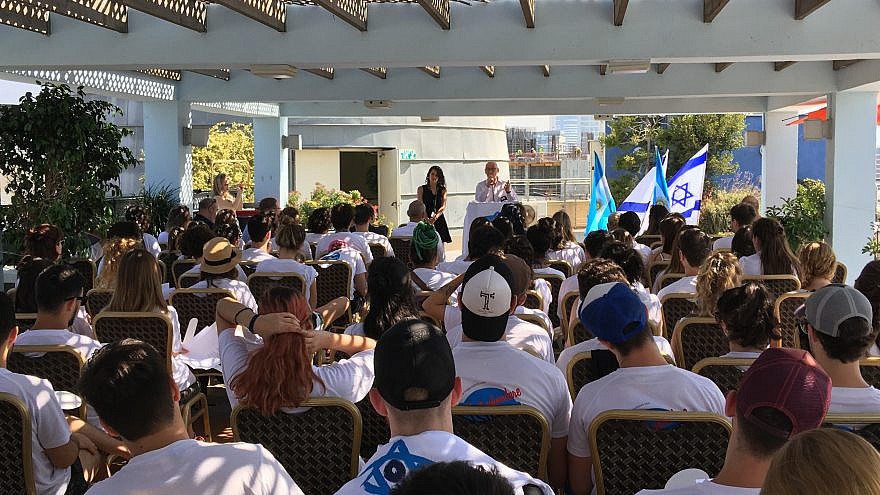In an event organized by Taglit, better known in the United States as Birthright Israel, 80 young Argentinians gathered on the rooftop of the Hotel Rut Daniel in Tel Aviv on July 18 for a memorial ceremony marking 24 years to the day of the bombing of the AMIA (Argentine Israelite Mutual Association) building in Buenos Aires. At exactly 9:53 a.m., the precise moment of the attack, those in attendance stood in silence to honor those who died.
The AMIA bombing—the deadliest in Argentine history—killed 85 people and injured hundreds more. It remains unsolved, the investigation mired in scandal and cover-up. In March, Argentinian authorities announced that former President Cristina Fernandez de Kirchner would face trial on charges that she helped hide Iran’s role in the attack. Eleven others were also to be tried, according to the federal judge’s ruling.
Zak, who worked in the AMIA building and lost many friends in the attack, was on a beach vacation with his family when the bombing took place. He remembers immediately packing his bags and returning to Buenos Aires. He acted as a point man at the bombing site, determining who could and could not enter the closed area, and helping to coordinate Israel’s emergency teams and investigators.
The audience, comprised of two Birthright groups from Argentina, at one point held up paper cut-out people representing the victims. Written on them were words like justicia (“justice”), impunidad (“impunity”) and verdad (“truth”). It is a particular form of protest associated with the AMIA bombing that was initiated in Argentina.
The young crowd also lit candles, listened to a memorial song by two of its members and heard speeches from Argentina’s Ambassador to Israel Mariano Agustín Caucino and CEO of Birthright Israel Gidi Mark.
‘We are one family’
Mark, who was a diplomat in New York when the AMIA bombing occurred, described feeling at the time as if all Jews had been attacked. “Such days make us remember that we are one family,” he said, adding that he believes in the “Jewish butterfly effect”—that when Jews are attacked in one place, Jews in another feel it.
“The Jews are a small people, 14 million,” said Mark. “We have to stick together.”
Hezi Gruber, head of the Latin-America Department of the Tlalim Group, one of Birthright-Israel’s organizing partners and himself from Argentina, said that 1,200 Jews will visit Israel this year from Argentina. That’s up from 1,000 last year, he noted. Birthright has brought some 21,000 youth from Argentina since its founding in 1999.
In total, 50,000 young Jews from nearly 70 countries will visit Israel this year under Birthright’s auspices, according to Mark. The organization offers an astonishing variety of programs beyond those for the college crowd—from tours for adults with special needs to culinary-themed trips for foodies.
“Taglit changed me a lot,” said Michal, a counselor in one of the groups. “In Argentina, the way you see Israel, it’s just war and problems. But when you get here and really get to know the place, it’s an amazing country and an amazing people.”
Michal, whose close friend lost her mother in the AMIA bombing, said she attends such ceremonies every year.
“It’s important to remember. Most of us here are 18 to 21—too young to remember what happened,” she said. “But by coming here, we make it part of our story, too. And we must make sure it never happens again.”


























